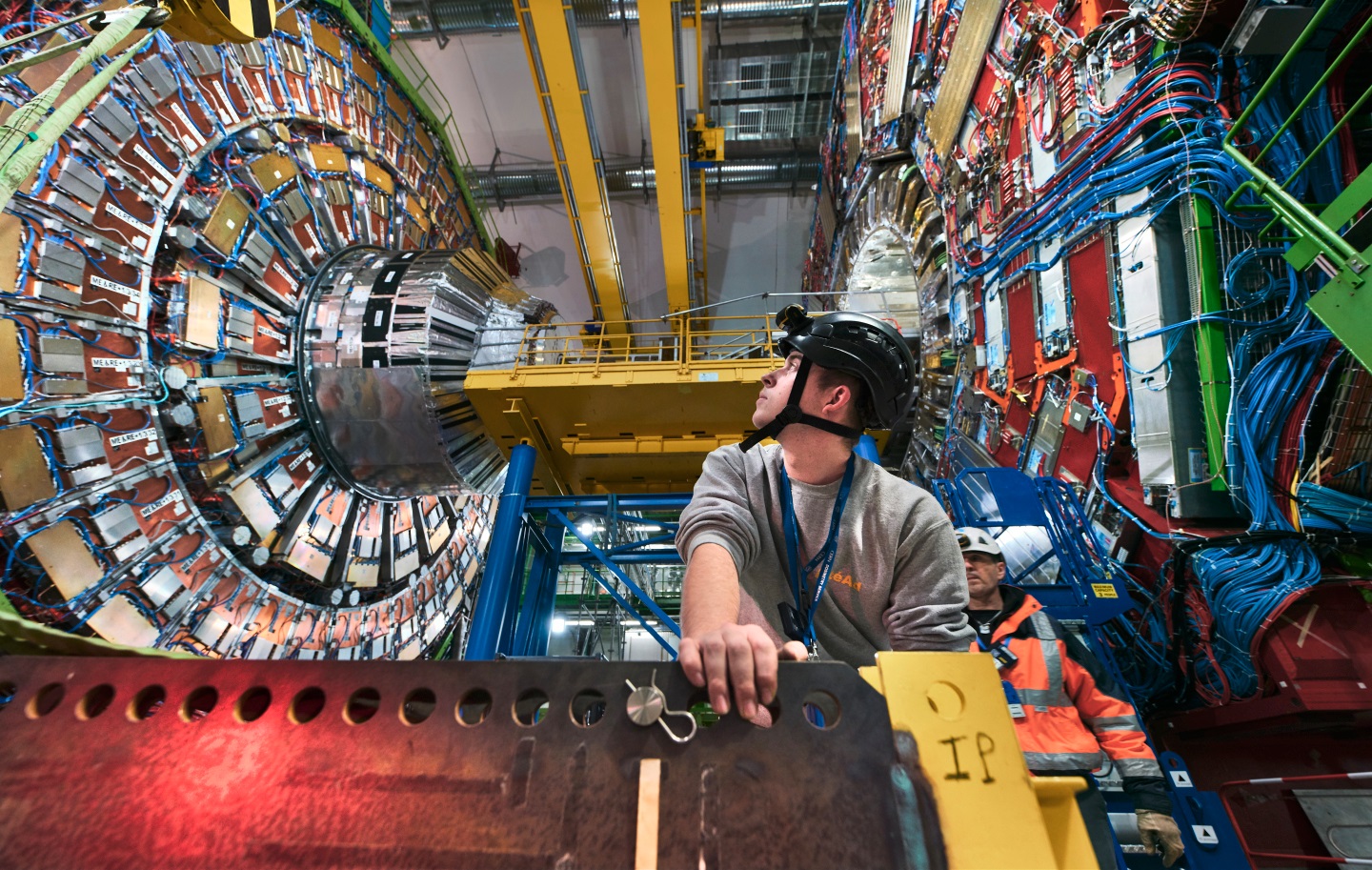Starting from September 2021, Riga Technical University, in collaboration with the University of Latvia, offers a new doctoral level postgraduate study programme in «Particle Physics and Accelerator Technologies». At RTU this programme is facilitated by the RTU Institute of Particle Physics and Accelerator Technologies, while at UL it is facilitated by the Faculty of Physics, Mathematics, and Optometry.
The programme is split into two main study directions and offers young researchers an opportunity to work towards a PhD in one of the two areas of research at the forefront of modern science and engineering, particle physics and accelerator technologies.
The programme prepares professionals who are able to innovate based on their knowledge of particle physics, accelerator technology and, more broadly, engineering, the use of information technology to manage complex processes, the practical processing and use of big data in science and the economy, and advanced sensor and detector systems to control and manage various technological processes.
The study programme has been developed within the framework of the ESF project "Reducing Fragmentation of Riga Technical University Study Programmes and Strengthening Resource Sharing" No. 8.2.1.0/18/A/013.
 An engineer working on the CMS experiment (Image: Maximilien Brice/Julien Ordan/CERN)
An engineer working on the CMS experiment (Image: Maximilien Brice/Julien Ordan/CERN)
In high-energy physics, our group is involved in the CMS collaboration at CERN. Doctoral candidates studying particle physics will join our group of researchers and work towards completing a thesis project involving either a physics analysis, research in detector development, or a combination of the two. In physics, our group’s main focus at present is Top quark physics, while the detector project in which we are currently involved is the MIP Timing Detector.
In accelerator technologies, our group is actively involved in various CERN-based research projects, collaborations and consortia, such as I-FAST, HITRI and TIARA. The students choosing this study direction will work towards completing a thesis project relating to the development of accelerator technologies for societal or medical applications. A great example of a research project already performed at RTU is the ARIES Proof-of-Concept project. Looking to the future, our group is seeking involvement in the development of the Future Circular Collider, opening the doors for the possibility of research projects in the development of accelerators for blue-skies research in the future.
Long-Term Attachments
As part of this study program the doctoral students are expected to spend an extended period of time, known as a long-term attachment (LTA), at CERN, near Geneva, Switzerland. During this LTA, the students will gain experience pertaining to their respective research project, such as taking responsibility for the operation of the CMS detector while on shift at the control room of the experiment.
Studentships and Funding
A number of government funded studentships are available for this study programme. In addition, the doctoral students are elected to a position of a scientific assistant or a researcher, depending on their experience at the start of their studies, and will receive appropriate remuneration, accordingly. Furthermore, while on LTA at CERN, these researchers are allocated an appropriate additional living allowance in line with CERN guidelines.
The list of available positions and studentships will be made available on the websites of RTU and UL. For more information on the currently available or upcoming positions or for any other queries, you can contact us via .
Study courses
Although this study programme is aimed at research, meaning most of the focus of the students are on their research projects, tailored study courses are also available. These obligatory courses focus on providing students with the essential knowledge and skills to successfully carry out their research. The topics covered by these courses include:
Further tailored choice courses available with the aim of providing the necessary knowledge-base and further specialisation, including:
The study courses are given by expert lecturers from RTU and UL, as well as guest lecturers from our partners of the CERN Baltic Group (CBG) and CERN.